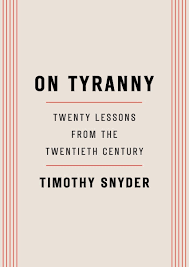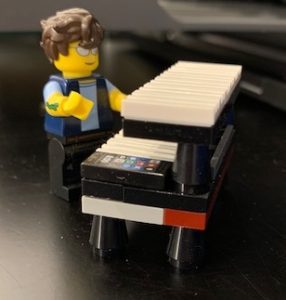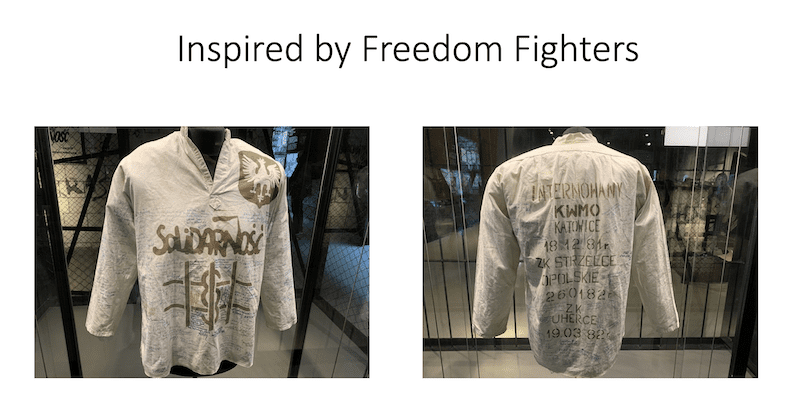Not Obeying in Advance
I just returned from a day of school visits to seventh grade classes in Harlem and the Bronx, where I talked about my inspiration for the character of JJ in Moonwalking and how art can help us express our authentic selves. The kids enjoyed seeing my Lego town and the minifigure of JJ that I put together. I also brought a model of the Casio keyboard that he takes from Long Island to Brooklyn even though his mother says there’s no room for it and he can’t make noise in the crowded apartment in Greenpoint where they’ll live, and his former music teacher remarks that he’s not exactly “the next Chopin.” I showed the kids pictures of the failed PATCO strike that causes JJ’s father to lose his job and his family their home, and of the Solidarity protests in Poland that President Ronald Reagan supported at the same time as he broke the PATCO union. JJ has a keen sense of justice that contributes to his interest in the Solidarity movement and his passion for punk rock. The students drew pictures of the things they’re passionate about, and those images will help to inform their writing in the weeks to come.
One of the slides I showed the students was of a prison-issued shirt that a Solidarity activist brought home and then donated to the European Solidarity Center exhibit in Gdańsk. The political prisoners were interned together under harsh conditions — far harsher than the conditions experienced by ordinary prisoners — but their isolation and ill treatment strengthened their bonds to each other as they vowed to continue the struggle. Many of those incarcerated after Poland’s communist dictator Wojciech Jaruzelski declared martial law in 1981 became the country’s democratic leaders after liberating their country eight years later.
Most people in the United States have never lived in a country where union activities, political opinions, or the content of our writing can land us in prison. Whether or not that will continue remains unknown. Before the election, two prominent newspapers declined to endorse the Harris/Walz ticket — a decision of the owners that overruled the newspapers’ editors. One was the Washington Post, owned by Amazon owner Jeff Bezos. The other was the Los Angeles Times, recently acquired by health care entrepreneur Patrick Soon-Shiong. I am particularly upset by the action of the LA Times in large part because my novel Torch received their Book Prize for Young Adult Literature in 2023 In my acceptance speech I spoke about the importance of preserving the freedom to read and write that my characters in Torch no longer enjoyed — and without those freedoms, they had no hope of changing their situation. What the newspaper owners did was, in the words of Timothy Snyder, to “obey in advance” out of fear of retribution. In his book On Tyranny, Snyder writes:
Most of the power of authoritarianism is freely given. In times like these individuals think ahead about what a more repressive government will want, and then offer themselves without being asked. A citizen who adapts in this way is teaching power what it can do.
 Yes, I have thought about what “a more repressive government” would want in terms of this blog, which intersperses overtly political content related to the themes of my books with other kinds of writing advice, Lego pictures, and guides for travelers to Portugal, New York City, and elsewhere. I considered taking down the blog altogether in anticipation of a crackdown on dissent, leaving only a page for my authored books and translations. I also considered culling the posts most likely to attract the attention of internet censors (as it has already done in China thanks to posts like this one). If the blog is taken down by the authorities, not only would you, the readers, not have access to it; neither would I. Hundreds of thousands of words contained in my blog posts would be unavailable to me from one day to the next.
Yes, I have thought about what “a more repressive government” would want in terms of this blog, which intersperses overtly political content related to the themes of my books with other kinds of writing advice, Lego pictures, and guides for travelers to Portugal, New York City, and elsewhere. I considered taking down the blog altogether in anticipation of a crackdown on dissent, leaving only a page for my authored books and translations. I also considered culling the posts most likely to attract the attention of internet censors (as it has already done in China thanks to posts like this one). If the blog is taken down by the authorities, not only would you, the readers, not have access to it; neither would I. Hundreds of thousands of words contained in my blog posts would be unavailable to me from one day to the next.
In the end, I’ve decided to leave everything as is and take my chances. Not obeying in advance. However, I’ve taken steps to back up not only the entire site regularly (as any blog owner needs to do just because bad things happen) but also to make separate backups of all my blog texts. Multiple backups on hard drives and flash drives, not trusting the cloud to be my friend in case of a crackdown. I plan to send some of those backups to people outside the country as well in order to protect my content. Taking measures to lock down my online presence with multiple backups isn’t complying in advance but staying safe, living to fight another day.









Well said. I just wish we didn’t have to think like this.
Agree. It’s created a bit of a career crisis for me because three of my books portray teenagers growing up under repressive regimes, and they’re not the kind of places I’d ever want to live. When I lived in Spain under Franco and spent a month in Chile at the end of the Pinochet dictatorship, I knew I would soon go back home, but now I can’t. This is home. I recently attended a PEN Translation Committee meeting focused on the plight of writers and translators in Iran, and the speaker said that the ones who couldn’t get out of the country have quit writing. That said, the dire situation now is a recent one, and until the crackdowns of the past few years, filmmakers continued to do their work, using metaphor and personal stories to shed light on the broader social situation.